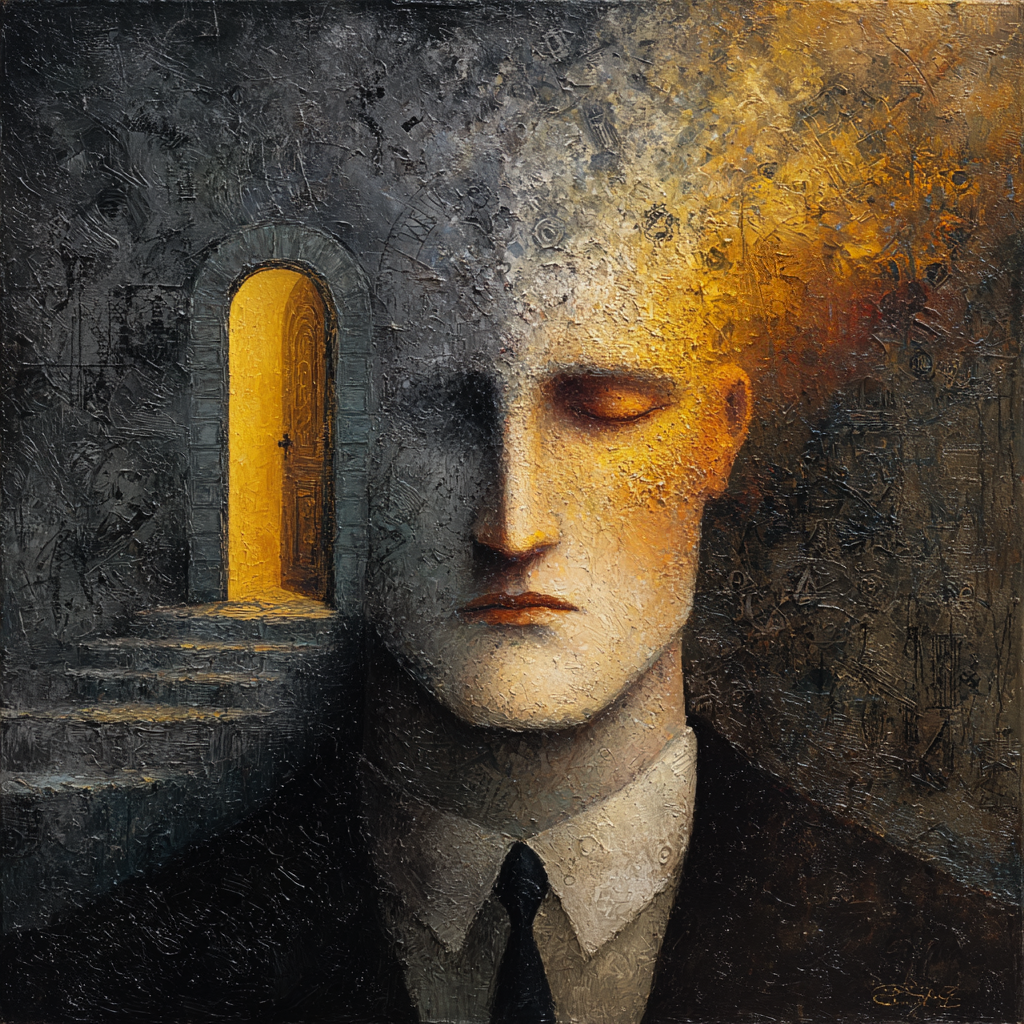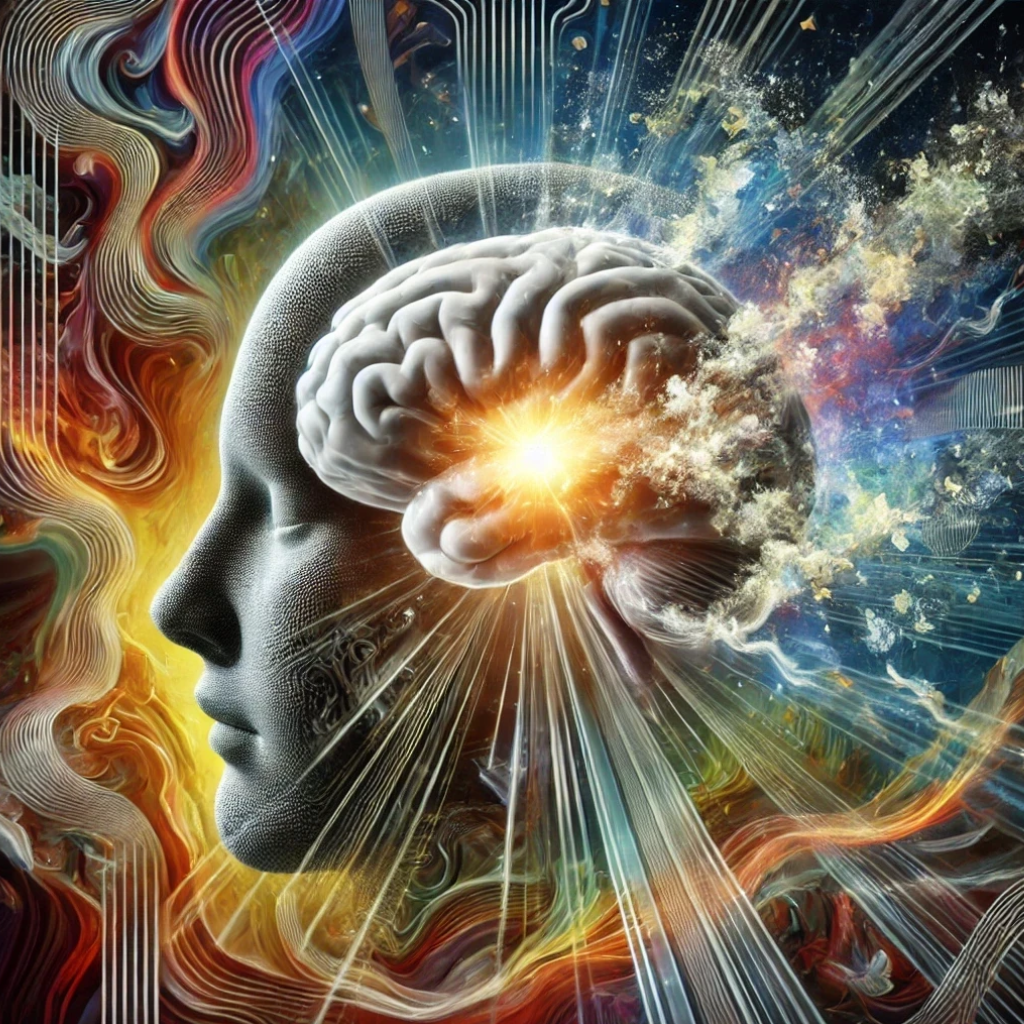Why Repressed Emotions Destroy Your Mind – Carl Jung’s Perspective

The Hidden Cost of Emotional Suppression
Many people grow up believing that ignoring or suppressing emotions is a sign of strength — that staying calm, pushing aside pain, or hiding anger is what it means to be “in control.” While this strategy may offer short-term stability, it often comes at a deeper psychological cost. Emotions that are not acknowledged don’t simply vanish. Instead, they retreat into the unconscious, where they continue to influence us — silently but powerfully.
Swiss psychiatrist Carl Gustav Jung, the founder of analytical psychology, emphasized that the unconscious is not passive. He famously said, “Until you make the unconscious conscious, it will direct your life and you will call it fate.” In Jung’s view, the parts of ourselves we refuse to face — whether painful emotions, rejected traits, or past wounds — become part of what he called the Shadow: the hidden aspect of the psyche that holds everything we deny, repress, or disown.
Over time, these unacknowledged parts begin to shape our inner and outer lives. They influence how we see others, how we react emotionally, the relationships we attract, and even the choices we make — often without us realizing it. True strength, according to Jung, lies not in emotional suppression, but in integration: the conscious act of turning toward what we fear inside ourselves, and making peace with it.
The Shadow: Where the Repressed Lives
In Jungian psychology, the Shadow is not evil — it is simply unknown. It contains everything we’ve been taught we “should not be” or “must not feel”: don’t cry, don’t be angry, be strong, be perfect. These messages often become internalized rules that disconnect us from our emotional truth. The parts of ourselves that don’t align with these ideals are pushed out of conscious awareness — but they do not disappear.
Instead, they continue to live on in the unconscious, surfacing in distorted or indirect ways: as projections (like judging in others what we deny in ourselves), emotional outbursts, psychosomatic symptoms, addictions, or unpredictable mood swings. The Shadow isn’t dangerous because it’s dark — it’s dangerous because it’s ignored.
Importantly, the Shadow does not contain only what is negative or painful. Jung emphasized that it can also hold positive traits we have disowned — qualities like creativity, sensitivity, playfulness, spontaneity, or healthy assertiveness. If, for example, we were told as children to “stop showing off” or “don’t draw attention to yourself,” we may have unconsciously repressed our natural confidence, voice, or desire to shine.
Thus, the Shadow is not just a repository of shame or fear — it is also where our unlived potential resides. Working with it is not about fighting who we are, but reclaiming what we’ve lost or hidden in order to feel accepted.
The Tension Between Who We Are and Who We Pretend to Be
Suppressing emotions creates a psychological divide between who we think we should be and who we really are. This inner conflict — between the persona we show the world and the self we keep hidden — generates ongoing mental and emotional tension.
Eventually, this tension surfaces in various forms:
- Anxiety and panic,
- Chronic stress or restlessness,
- Relationship difficulties,
- A sense of emptiness, disconnection, or dissatisfaction with life.
Jung warned that human beings will do almost anything to avoid facing their own soul. And this is exactly what we do when we ignore or deny our emotions: we run from ourselves, unknowingly deepening the split within.
When Emotions We Ignore Begin to Control Us
Repressed emotions don’t fade — they metastasize. Anger that is never expressed turns inward, becoming irritability, resentment, or even self-loathing. Grief that is never mourned becomes apathy. Fear morphs into the need to control. And the more we try to suppress these feelings, the more they reassert themselves through the “back door” of the psyche — often in destructive or confusing ways.
Jung emphasized that the task is not to fight or eliminate our darkness, but to bring it into the light of awareness. Healing does not come from rejection, but from understanding and conscious relationship. The emotions we repress are not enemies — they are messengers carrying vital information about our unmet needs, past pain, and unrealized potential.
Individuation: The Path to Wholeness
For Jung, the ultimate purpose of life was not perfection, but wholeness. This lifelong process, which he called individuation, involves integrating the conscious and unconscious aspects of the psyche — including the Shadow.
Individuation is not about becoming someone else. It’s about reclaiming who you already are by accepting both the light and the dark within. That means:
- Seeing strength in your anger,
- Sensitivity in your grief,
- Power in your vulnerability,
- And growth in your deepest wounds.
It’s not about thinking positively at all costs, but about embracing a deeper truth — one that heals, liberates, and makes us real.
How to Begin This Inner Work
Working with repressed emotions and the unconscious can be challenging — but it’s also deeply rewarding. Here are a few ways to begin:
- Emotion Journal
Write daily about what you felt, what you suppressed, and moments when you felt emotionally “stuck.” Allow space for all feelings — even the uncomfortable ones. - Meditation: Meeting the Shadow
Sit quietly, close your eyes, and imagine entering a dark room. In it sits a figure holding your anger, fear, shame, or sadness. Sit with them, and simply listen. What do they want you to know? - Inner Dialogue
Speak to your emotions as parts of yourself. For example:
“I see your anger. I do not judge you. You are a part of me. I accept you.”
This can help transform fear into connection. - Therapy or Shadow Work with a Professional
Some wounds are so deep that working with a trained therapist or guide is not just helpful — it’s essential.
Conclusion: Wholeness Over Perfection
Repressed emotions are not signs of weakness — they are invitations. They are your soul’s way of asking you to stop fearing yourself. Carl Jung reminds us that the goal of life is not to become just “good,” but to become whole. And wholeness only comes through integration — not avoidance.
Healing doesn’t begin when you push pain away.
It begins when you turn toward it — with courage, curiosity, and compassion.

